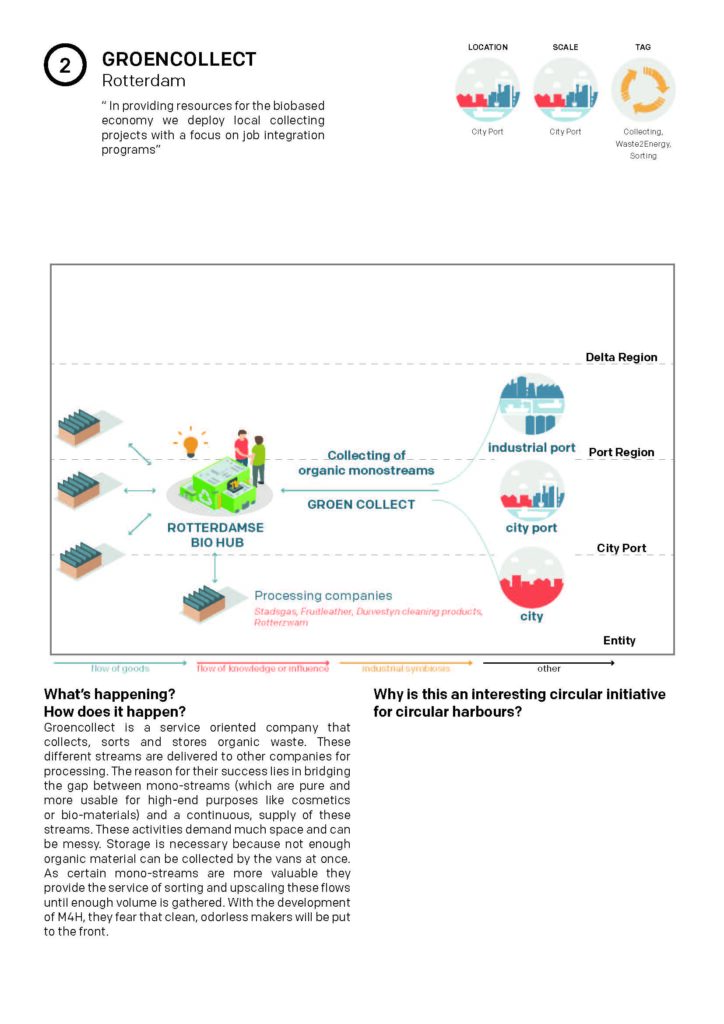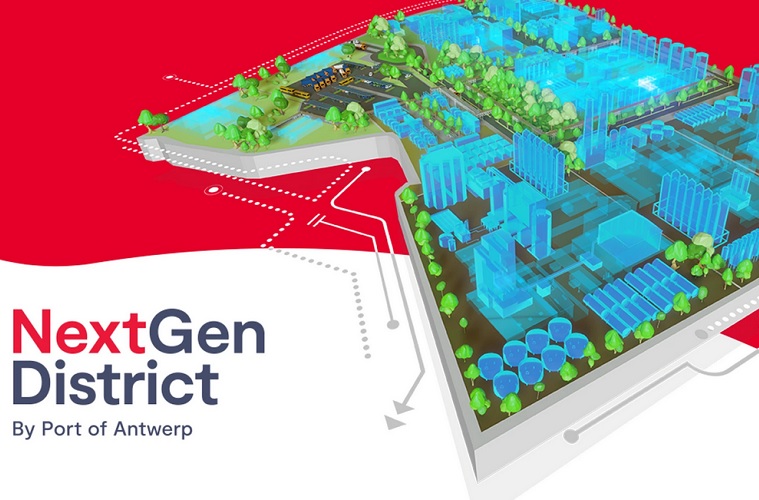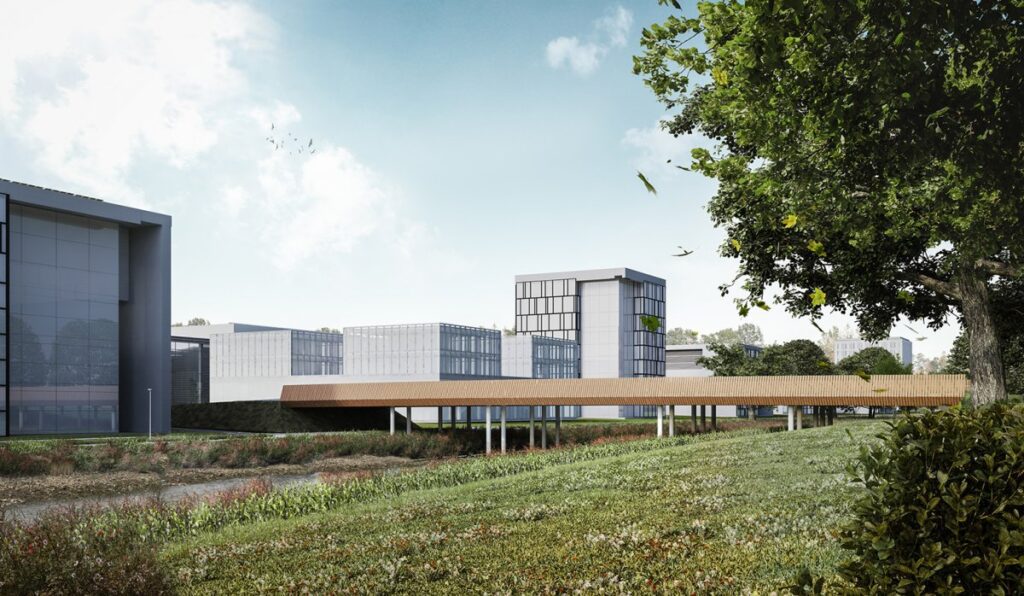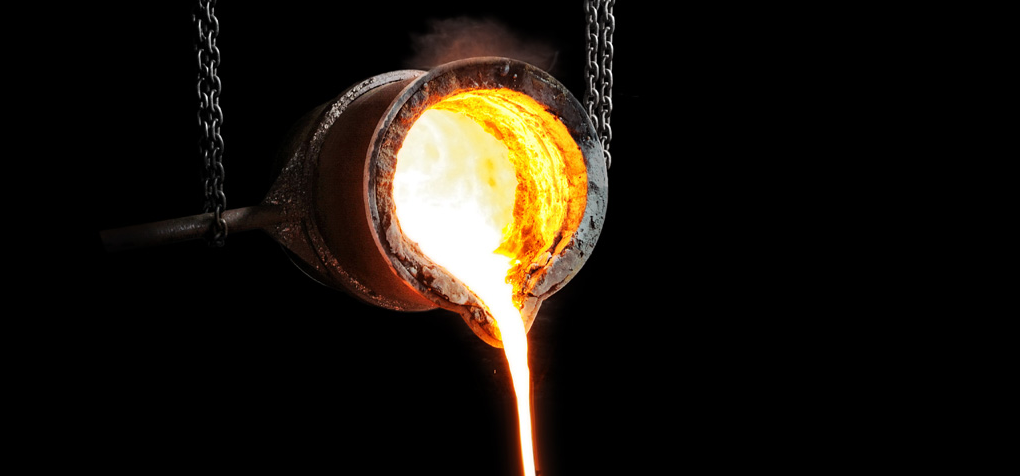In providing resources for the biobased economy we deploy local collecting projects with a focus on job integration programs
What’s happening? How does it happen?
Groencollect is a service oriented company that collects, sorts and stores organic waste. These different streams are delivered to other companies for processing. The reason for their success lies in bridging the gap between mono-streams (which are pure and more usable for high-end purposes like cosmetics or bio-materials) and a continuous, supply of these streams. These activities demand much space and can be messy. Storage is necessary because not enough organic material can be collected by the vans at once. As certain mono-streams are more valuable they provide the service of sorting and upscaling these flows until enough volume is gathered. With the development of M4H, they fear that clean, odorless makers will be put to the front.
Why is this an interesting circular initiative for ports?
Both its business-model (new skilled-labourforce) and its operation are innovative and representative for new circular ways of doing things. Collecting mono-stream waste flows from the city (and port), nourished by an innovative makers network, their activity is growing quickly.

What is the relation with the port and water?
Located in the former biggest fruit and juice cluster of the world, an interest and business was developed for organic waste and its possibilities. It started in this in-between period between the former port area and the future as a cityport. Leftovers from the (former) fruit-port were collected and used as resources for testing and processing. Several years later, their business has grown by x30 and they provide monostream organic waste flows from the city, to be processed by other companies, located around them. As certain mono-streams are more valuable they provide the service of sorting and upscaling these flows until enough volume is gathered.
What is the relation with the city?
As they work with organic waste streams from the city, their location close to the city is crucial. For them, the proximity to these flows (both city and port), the space for testing (environmental legislations/smell/noise/space) and interaction with other ‘makers’, were key to their success. As such, they fill in a gap between large scale industrial processing facilities and small scaled labo’s that develop new technologies. On top, they work together with a neighbourhood initiatives around job integration programs wherein they educate long-termed unemployed people with skills in the circular economy.
What are the ambitions?
Working in this specific service for 3 years now, they developed a network of providers (restaurants, distribution centres, …) and a network of producers around them. With their development of the Rotterdam BioHub their position is more consolidated and their business is growing rapidly. As such, they positioned themselves as a crucial spill and game changer for a more high-level valorisation of organic waste.
Who is behind it?
The Rotterdam Biohub is a concept created by GroenCollect [Green Collect] and Stadsgas [Citygas]. These companies focus on collecting organic waste from dense urban environments. The hub focuses on the production of materials from these waste streams. For example producing detergent from orange peelings or anti corrosion fluids from bananas.




